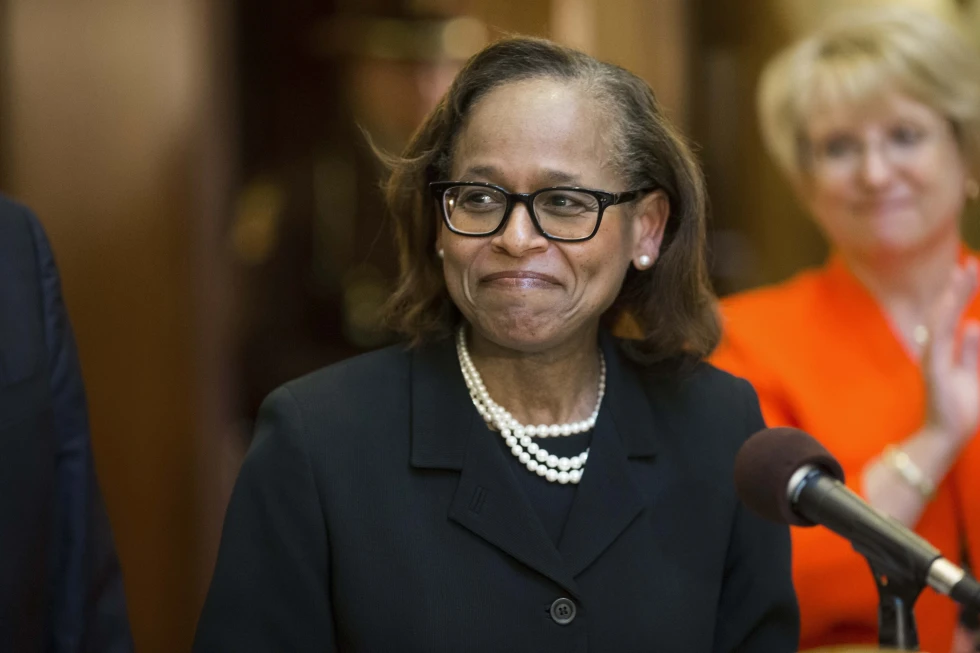Governor Tim Walz recently promoted Associate Justice Natalie Hudson to Chief Justice of the Minnesota Supreme Court this fall. Hudson will become the first Black Chief Justice of the state’s Supreme Court. She will lead the high court when Chief Justice Gildea retires in October.
“Justice Hudson is one of our state’s most experienced jurists. She has a strong reputation as a leader and consensus builder,” Gov. Walz said in a statement. “I am confident that she will advance a vision that promotes fairness and upholds the dignity of all Minnesotans.”
According to the AP, only one justice appointed by a Republican will remain. However, observers believe the court’s nonpartisan reputation will be maintained. This is contrast with the partisan tensions in Wisconsin’s state Supreme Court and the progressively conservative stance of the U.S. Supreme Court. When Hudson steps into her position, all but one of the seven Supreme Court justices will have been appointed by Democratic governors.
In Minnesota, governors can appoint judges without requiring legislative approval. Hudson was appointed to the Supreme Court in 2015 by a Democratic governor, following her 13-year tenure on the Minnesota Court of Appeals. She succeeded Justice Alan Page, the state Supreme Court’s inaugural Black justice.
“This is a tremendous responsibility that I approach with humility and resolve, seeking to continue the work of my predecessors in administering one of the best state court systems in the nation,” Hudson said in a statement.
Governor Waltz named Karl Procaccini, his former general counsel to fill Hudson’s spot as Associate Justice.
A Historic Accomplishment
Anansi Wilson, the director of the Center for the Study of Black Life and the Law at the Mitchell Hamline School of Law said Hudson’s promotion is a historic accomplishment.
“It’s important to have a Black woman there who’s principled, studied, and prominent in the community,” he said.
Despite its predominantly white demographic, and the tragic incident involving George Floyd, Minnesota is moving towards more representation for Black individuals in authoritative roles.
“What does it mean that Black people are becoming the face of justice in this state and not just injustice?” he asked.
